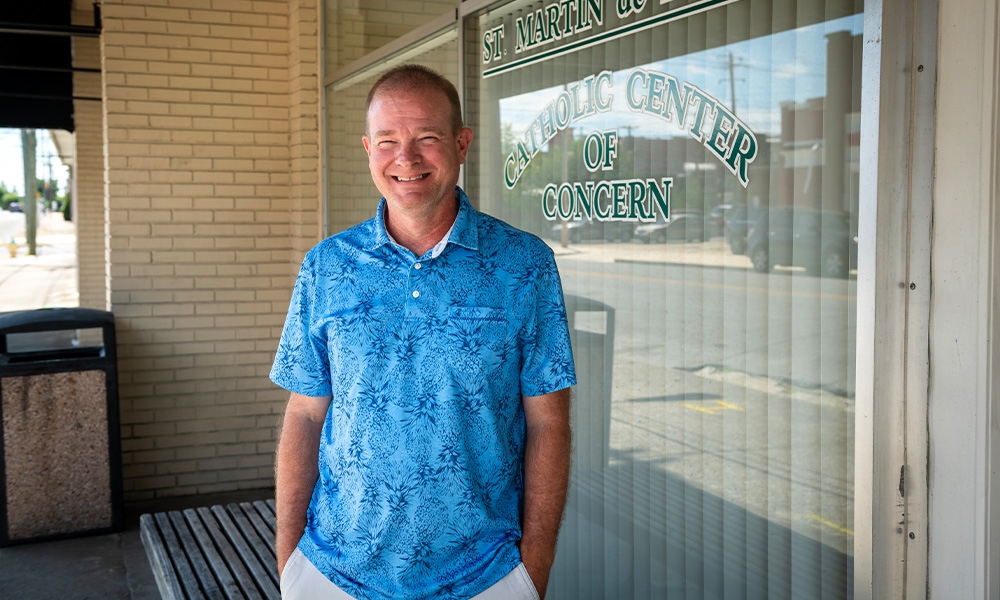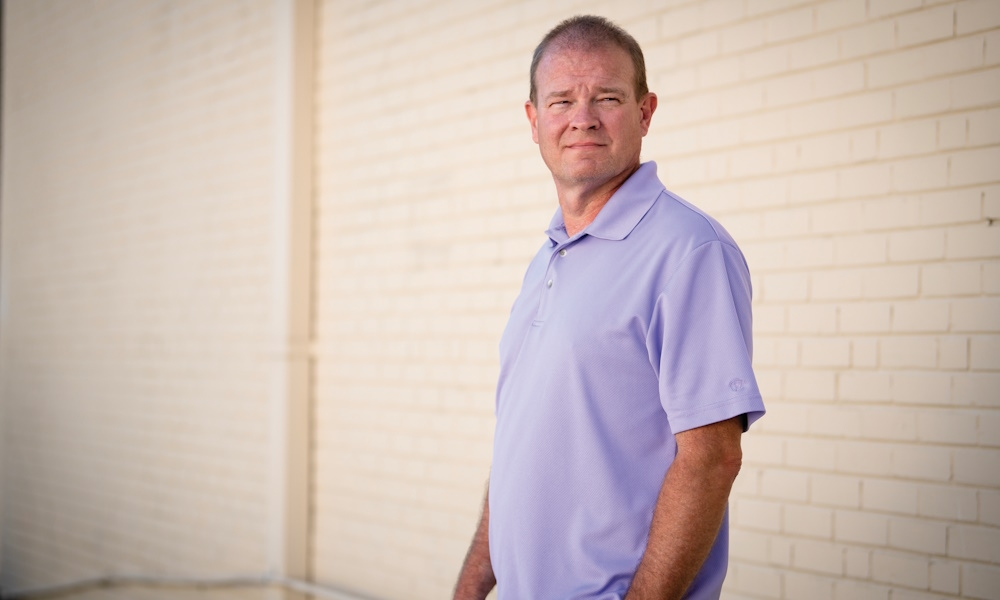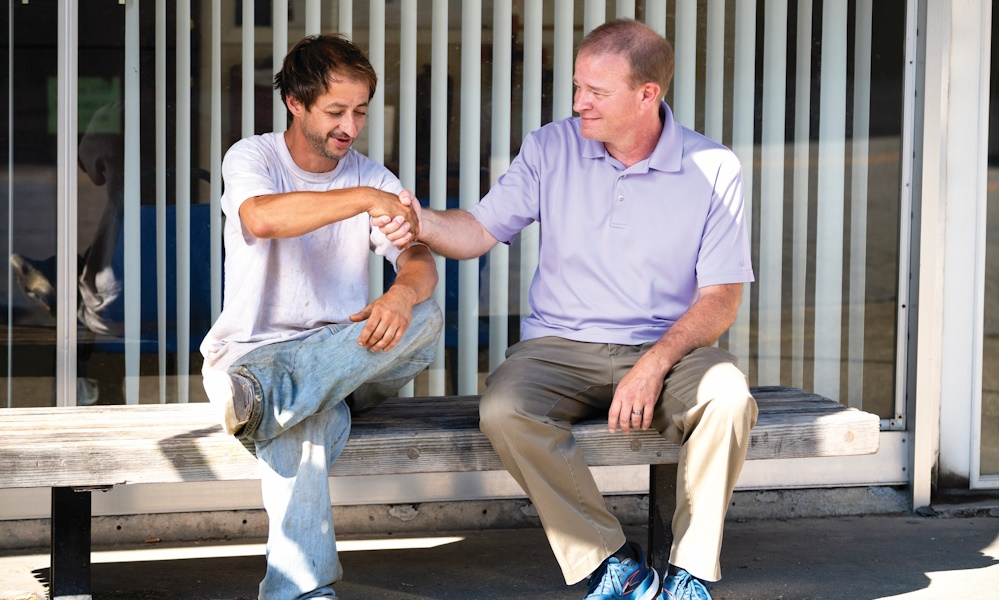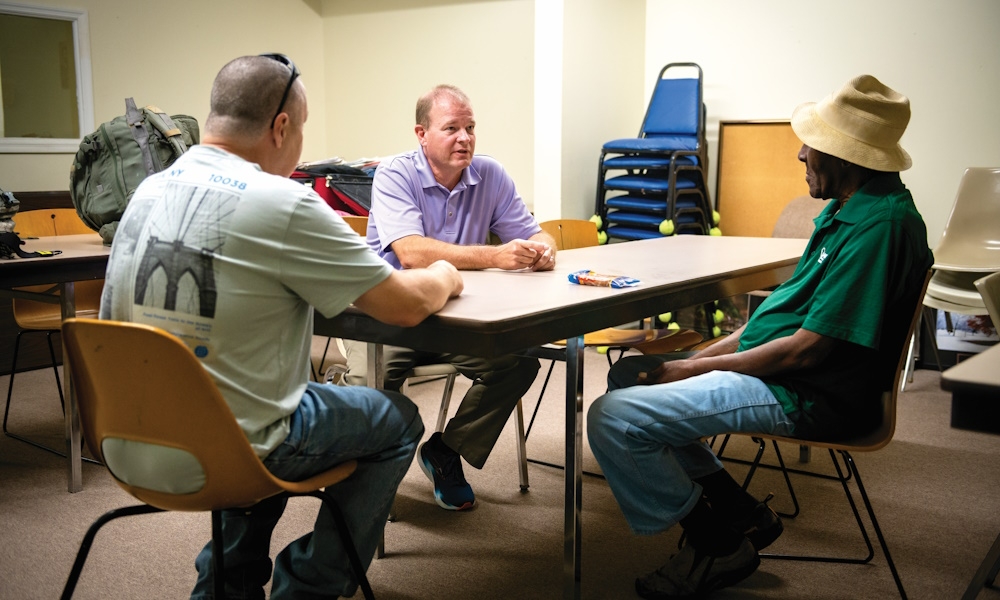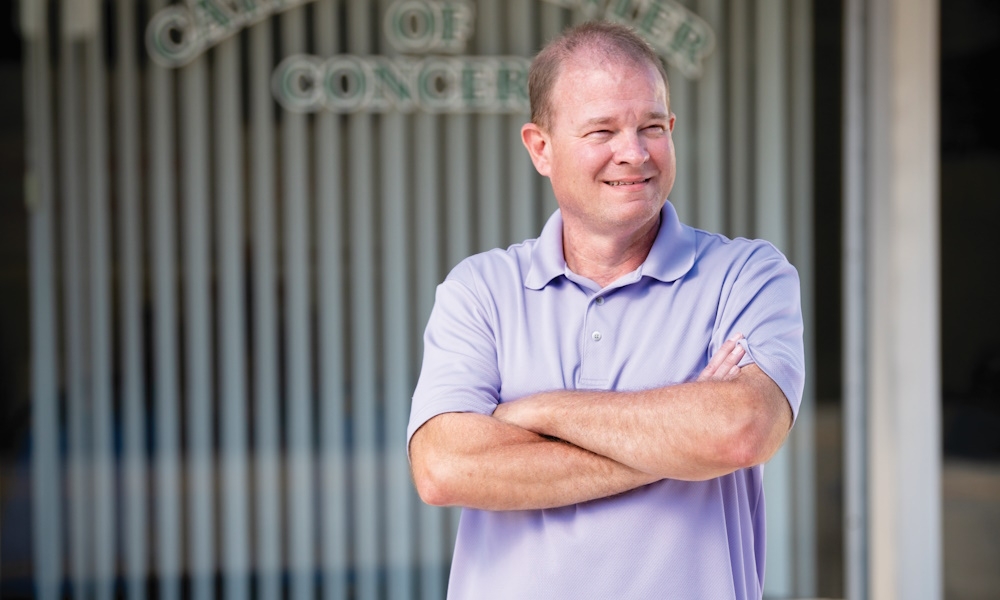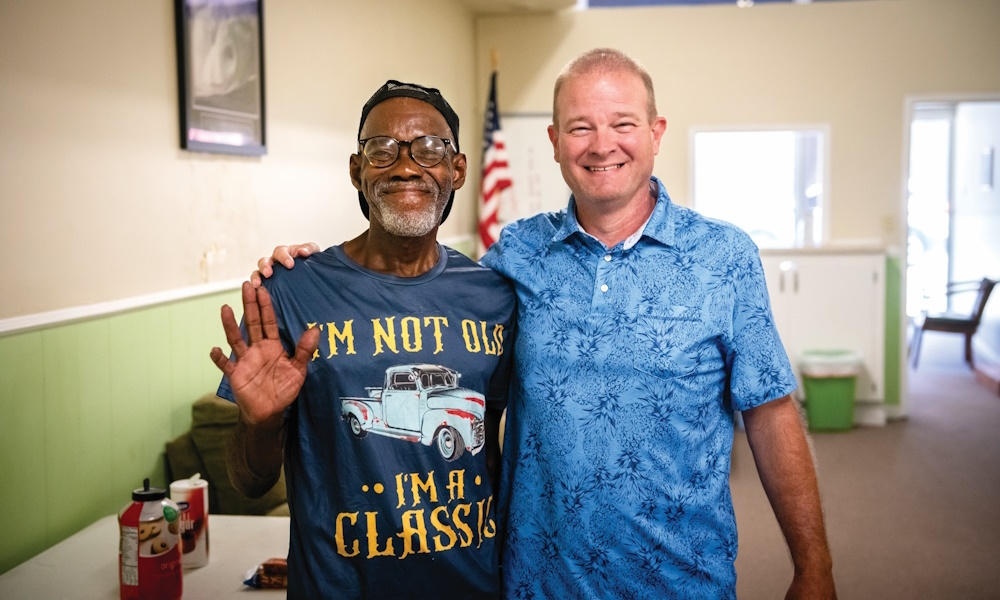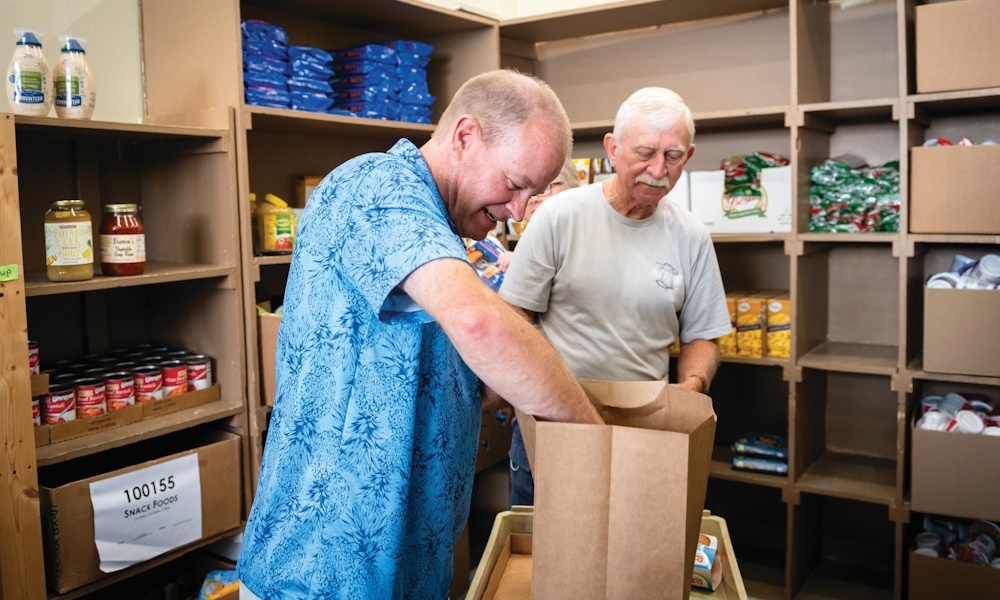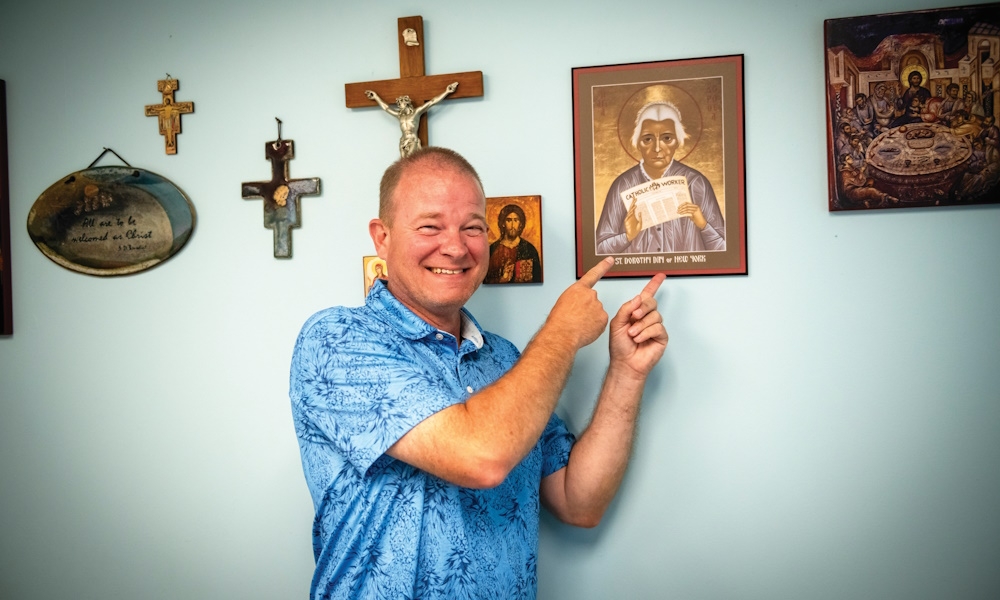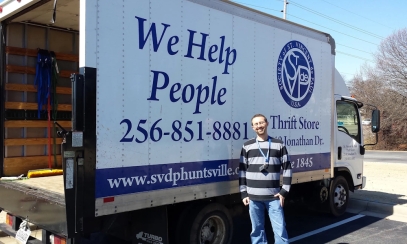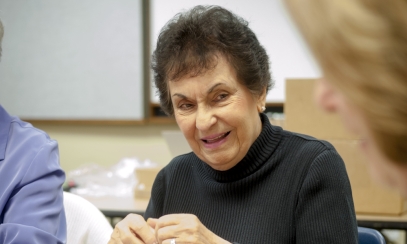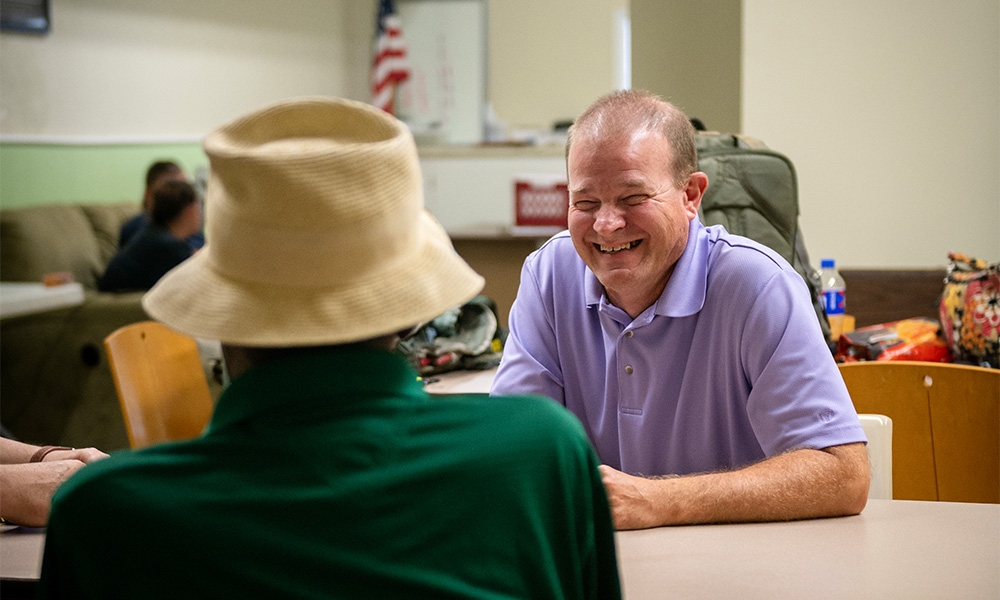
Seeking Jesus beyond the veil of disguise
‘I assure you, as often as you did it for one of My least brothers, you did it for Me.’
‘I assure you, as often as you did it for one of My least brothers, you did it for Me.’
Lee Bean, director of Gadsden’s St. Martin de Porres Catholic Center of Concern, came to the east Alabama center almost eight and half years ago. His path to the position, however, began many years prior. Reared in the Southern Baptist Church he eventually found his way to the Southern Baptist Theological Seminary in Kentucky.
Near the end of his years at seminary, he was in need of a last few credit hours. The only elective available was a course titled “The Church and Social Ministry.” “I didn’t even want to take it,” remembers Bean, but the experience exposed him to something unfamiliar, almost foreign to him: the poor, the widow, the orphan up close. For Bean, the course initiated a self-professed “rebirth,” which opened his eyes to his calling in life.
Lee Bean, director of Gadsden’s St. Martin de Porres Catholic Center of Concern, came to the east Alabama center almost eight and half years ago. His path to the position, however, began many years prior. Reared in the Southern Baptist Church he eventually found his way to the Southern Baptist Theological Seminary in Kentucky.
Near the end of his years at seminary, he was in need of a last few credit hours. The only elective available was a course titled “The Church and Social Ministry.” “I didn’t even want to take it,” remembers Bean, but the experience exposed him to something unfamiliar, almost foreign to him: the poor, the widow, the orphan up close. For Bean, the course initiated a self-professed “rebirth,” which opened his eyes to his calling in life.
As an eager seminary graduate, Bean became the pastor of a little Baptist church in Shelbyville, Kentucky. Keeping his gaze fixed on the “least of these,” he took it upon himself to minister to the homeless. Due to a lack of resources, though, most of the time, he would drive the individuals to shelters in neighboring cities so they would be protected from the elements. Seeing a need, he thought, “We should probably have a little shelter in our town.” Without a second thought, Bean dove in, starting from scratch, and opened a shelter for the town’s homeless population. The ministry was a 24/7 job which was rather taxing not only on him but also on his family; nevertheless, he didn’t back away from the challenge.
While living out his ministry as a Baptist pastor and shelter director, Bean would regularly converse with an old seminary buddy, Jeremiah Russell. After completing seminary in Kentucky, Russell went on to pursue a doctorate at Louisiana State University. During his studies, he was introduced to the Catholic faith by professors and friends, leading him to Catholicism and reception into full communion with the Catholic Church in 2007. When Bean heard of his old buddy converting to Catholicism, he says he got a sick feeling in his stomach and thought, “What’s wrong with him?”
The two spent a great deal of time debating and arguing about Catholicism, but Russell, who just so happens to be the current principal of St. John Paul II Catholic High School in Huntsville, continued trying to show Bean the beauty of the Catholic faith. Along the way, Bean was introduced to Dorothy Day and Thomas Merton. He can’t remember how he came upon Day’s writings, but her writings helped seal the deal for which his friend Russell had been advocating.
Bean, with his entire family, moved back to Alabama and came into the Church in 2014 at Holy Infant of Prague Catholic Church in Trussville under the guidance of Father Bill Lucas, then pastor.
Being a Catholic ex-Baptist pastor with a bachelor’s and master’s in ministry didn’t exactly make Bean “marketable.” For two years, he did what he needed to do to make ends meet for his family, working a secular job to pay the bills and provide for his three children, yet he questioned, “Have I done the right thing?”
He confided in his faithful friend, Russell, who informed him of a job with the Catholic Diocese of Birmingham. The position was right down Bean’s alley: director of the St. Martin de Porres Catholic Center of Concern.
Even though Bean didn’t have a degree in social work, he took a leap of faith and applied for the job. His experience with low-income individuals and families proved he would be a good fit for the position, and he was hired in 2016. With enthusiasm, Bean took stock of the institutional social service ministry he was entrusted to lead and asked, “Why do we do it like that?”
His goal was to make the ministry “more personable.” Bean took steps to do just that, but the COVID-19 pandemic put a proverbial wrench in his efforts. Always trusting in the Lord, Bean continued to give out food to those in need in spite of the closures caused by the pandemic. The so-called “switching of gears” allowed Bean to make some changes. He knew the food pantry and financial assistance for rent and utilities were still needed, but he wanted to do something different.
“There’s a lot of foot traffic in this downtown area,” says Bean, “with people who are either sleeping outside or in abandoned houses. … Nobody was really doing anything for the homeless other than the Salvation Army, which has an overnight shelter.”
With one side of the center being dedicated to the food pantry and the other side with a large unutilized room, Bean knew he had space to offer, so he decided to create a “drop-in center” where the homeless could come off the streets during the morning hours to eat breakfast, use the bathrooms, clean up, and rest. As the homeless learned of the new daytime refuge, Bean befriended those he encountered, learning names and the long lists of hardship.
It is in those moments that Bean offers mercy. One man he met, for example, was sleeping in a car with his girlfriend and six children. Wanting to help, Bean worked with a local motel to get the large family in two rooms for a week. Keeping lights or water on is another way he gives a hand up to those struggling. Offering bus tickets or a month’s rent are other ways Bean is able to help those suffering.
Bean’s mentality is and always has been to judge success differently than that of the secular world. Does success equate to getting someone off the streets and in long-term employment? Bean doesn’t discredit such an outcome, but his measure of success is how well he and his team embody the works of mercy. “A person that’s getting off the street and getting some food in their belly,” says Bean, “is success. They might get housing; they might not. They might find employment; they might not, but when we’re talking about the works of mercy, I think we have to judge success a little differently.”
Along those lines, Bean also calls attention to that which can’t be measured. He tells the story of an elderly lady who frequented the center because her daughter and granddaughter would steal her Social Security check. Knowing she could trust Bean, the woman confidently gave him her Food Stamp card for safekeeping. “They trust me to do what’s right for them,” he explains. “That doesn’t go on a stat sheet!”
What Bean has done in Gadsden with the help of funds from the Bishop’s Annual Appeal for Catholic Charities and Communities is much more than numbers of families assisted on a stat sheet. He lives everyday taking to heart Jesus’ teaching on the Last Judgement in Chapter 25 of Matthew’s Gospel: “Come. You have My Father’s blessing! Inherit the Kingdom prepared for you from the creation of the world. For I was hungry and you gave Me food, I was thirsty and you gave Me drink. I was a stranger and you welcomed Me, naked and you clothed Me. I was ill and you comforted Me, in prison and you came to visit Me. … I assure you, as often as you did it for one of My least brothers, you did it for Me.”
Bean knows in his heart that Jesus’ words are meant for all of us. “The bedrock of Catholic social teaching is the dignity of every human person … I remind myself every day that every person standing in front of me, no matter what they’re saying or how they’re acting, is, as St. Teresa of Calcutta said, ‘Jesus in His most distressing disguise.’”

